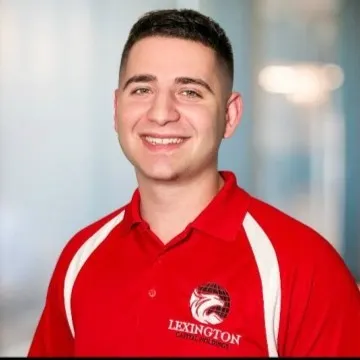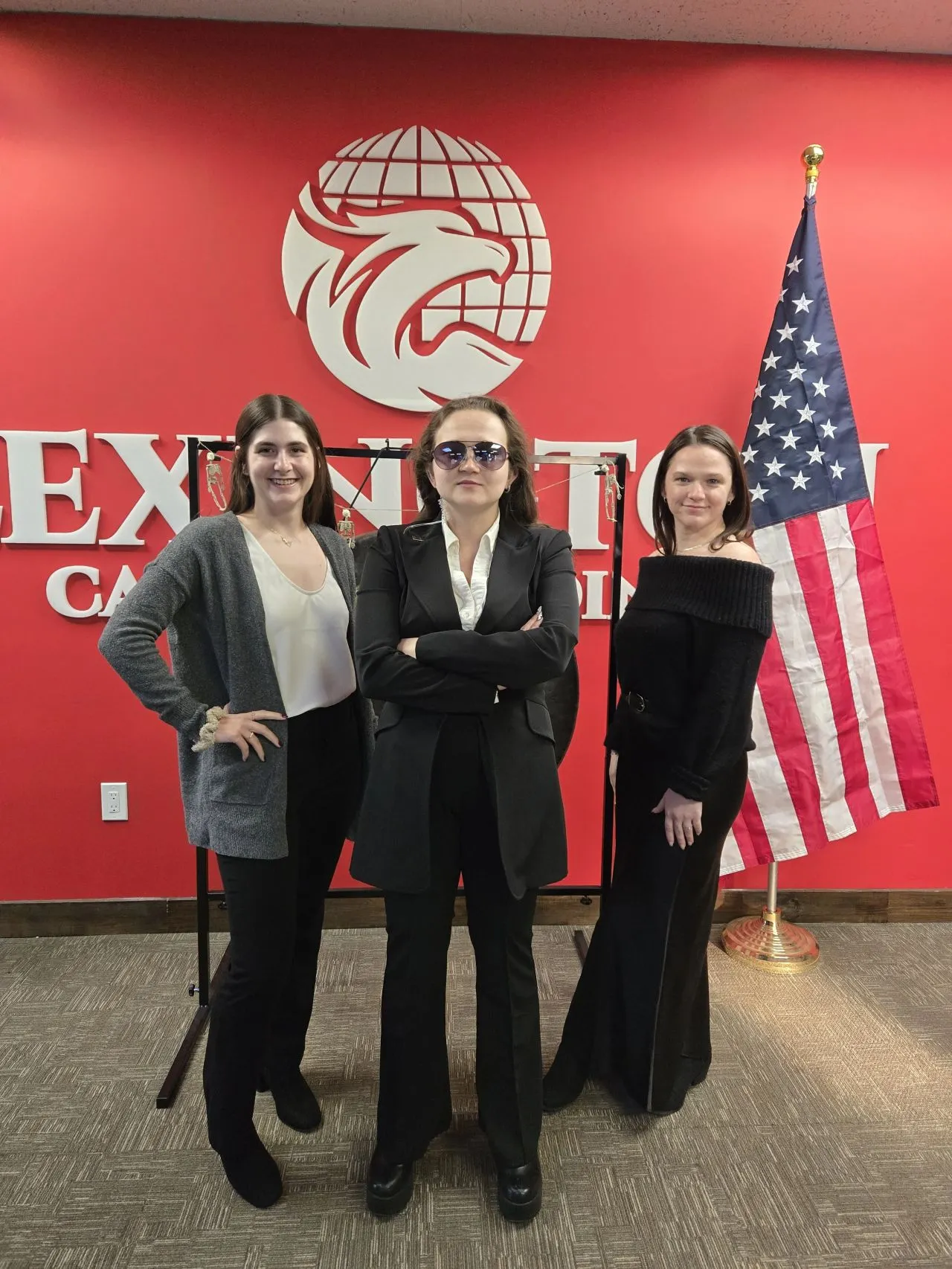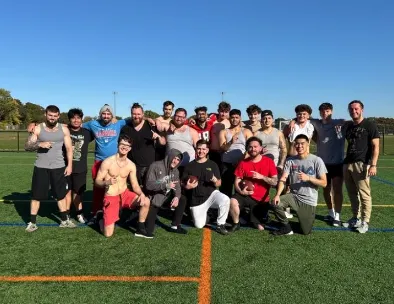Lexington Capital Holdings, a small- to medium-sized business lending brokerage that is approaching its third year of operations, has seemingly solved a challenge that CFOs and other leaders have struggled to address. Based about 60 miles outside of New York City in Centereach, New York on Long Island, the company has 60 employees averaging around 25 years old, including their CEO Frankie DiAntonio, and doesn’t offer any of the workplace gimmicks some might expect these employees to require.
At Lexington, meetings start daily at 7:45 a.m. Employees, mostly business loan brokers, either cold call or use leads to sell different types of financing to businesses. There are no baristas or free breakfast stations. Employees are not pampered; in fact, everyone is in the office five days a week. Days begin with “Any Given Sunday”-esque pump-up speeches, and company recreational events on the weekends are regularly attended by most employees by choice.
According to DiAntonio, the ability to make young people want to work and be interested in working hard starts before they ever come through the door. His unique approach to recruiting, talent retention, culture development and organizational structure has allowed him to not only launch a successful business from scratch but also do so in a way many CFOs could only dream of, using culture to create a sustainable, highly engaged workforce with a strong talent pipeline.
Creating a self-sustaining talent pipeline
According to DiAntonio, the essence of his culture is already within some prospective candidates, and it’s up to him and his team to identify that during the interview process. “It’s in the people we recruit,” DiAntonio said when asked about getting buy-in from young people. “Everyone here, including me, came from similar household incomes. We’re all around the same age, and we all come from a typical lower-middle-class background, so we are gritty.”

He praised the work ethic of young people from Long Island and noted rising prices in the area have made it increasingly difficult for many employees to start lives and raise families where they grew up.
“So many people, especially those in their mid-to-late 20s and early 30s, are looking to leave Long Island because of rising prices,” DiAntonio said. “We are putting our foot down and saying, ‘No, even though we didn’t come from much, we’re going to earn our way to stay here and give our families a better life than we had in the same place we call home.’”
DiAntonio believes that once this tenacity is established, prospective employees’ work experience needs to show only a strong work ethic and professionalism. “For me, unless you’re going to be a doctor or a lawyer, hard work and the ability to succeed in business aren’t determined by a college degree or lack of one. The best people I hire come from blue-collar fields like construction and the restaurant industry.”
However, DiAntonio doesn’t just hire any bartender who can talk and cold-call business owners. Nearly all his employees are referrals. He credits the culture as a driver of talent acquisition and retention and says this system has allowed him to scale his team with the right people relatively seamlessly. “We don’t hire people from our industry or with prestigious business degrees, so we have to teach our employees from scratch,” DiAntonio said. “This is our biggest challenge.”
He also credited his employees’ willingness to learn and work in a new industry, noting that despite the time, costs and learning curve associated with a new industry, the collective learning experience has created a contagious positivity in the office.
“We’re accomplishing something new and improving every day. We’re a bunch of homegrown Long Island kids defying the odds. We’re on our way to becoming a Goliath in this industry, where not too long ago we were once David. We all believe in what we’re doing, and we have to, because if this doesn’t work out, many of us would have to go back to bartending, construction and warehouse jobs. That keeps the spirit alive. For many of us, without this company, there is no tomorrow.”
The importance of entrenching workplace safety into culture
Implementing a traditional approach to work culture in an office of 25-year-old business loan brokers is unique, DiAntonio says, but necessary for his vision of culture’s role in an organization to succeed. Though DiAntonio’s sister and longtime girlfriend hold top positions at the company, his ideas about creating a safe space for women in the office go beyond keeping important women in his life safe.

“I think one thing we’ve done well is creating an environment where everyone, including women, can feel safe and comfortable in the office. The business world is tough on women, and I’ve focused on setting a new precedent with our culture regarding female safety in the workplace,” DiAntonio said.
“We encourage that when the women leave the office, they’re accompanied by a male employee to their cars whenever possible,” he continued. “It’s a bit traditional, but it’s caught on and has become a big part of our culture. I think this idea of men looking out for the women in the office, and everyone doing their part, creates a workplace where both genders can be safe, have fun and have an equal opportunity to make a good living. It’s that type of camaraderie that can make a company into a family.”
ROI on extracurriculars
Though he spends a lot on company outings, DiAntonio says things such as pumpkin picking, flag football games and dinners, have transformed his team from work friends to real friends. He says the benefits extend beyond team bonding to provide a great measure of employee attitude, which must be extremely positive to fit the company culture.

“Maintaining positivity in the office and our culture is crucial to me, and I think that’s the major ROI on culture spending outside of dollars and cents,” DiAntonio said. “Yes, a major portion of our expenses is employee activities, but the consequences of negativity in this culture would be detrimental. Negativity is contagious, and it can trickle down and affect people.”
“Attitude is everything,” he continued. “If someone is fun to be around and hard-working, I’ll give them every opportunity to succeed. I’ve invested in employees for over a year because they were good people and contributed to our culture. If someone brings those qualities, I think it’s worth investing time and effort in them, regardless of how long it takes, to make them the best they can be.”
Mixing money and blood
When asked about mixing money and blood in the context of building a business around everyone being friends and family before they walk in the door, DiAntonio rejected the idea that family, friends and business don’t mix well, crediting the faith he put into his sister early on as one of the best business decisions he ever made.
“To people who say money and family don’t mix, I would tell them they don’t have a good enough relationship with their family. I understand not everyone is born into the best situation, and I’ve built a business on that idea, but I’m blessed to be related to some of the most trustworthy people in my life,” he said. “When it comes to my sister, I trust her. I believe in her. I’ve put a lot of faith in her to be our head of ISO relations. There’s no one I trust more than her. If I’m going to put all my trust in one person for insight on how to grow and drive the business, it’s going to be her.”





